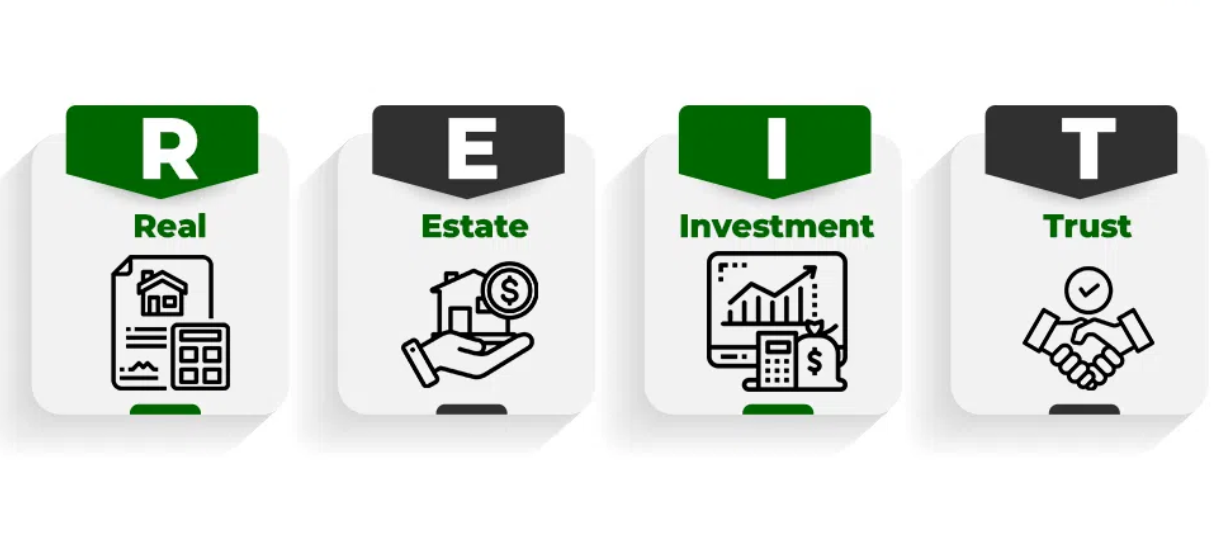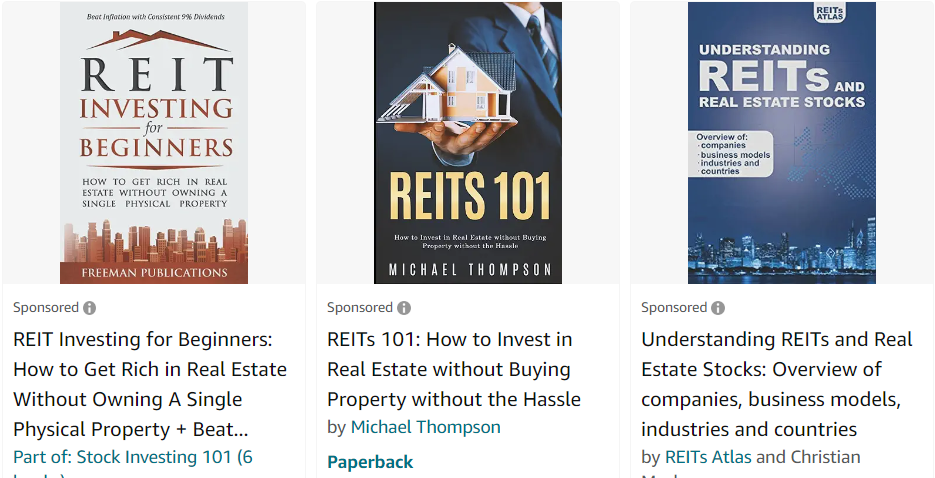Building Passive Income with REITs: Your Guide to Real Estate Investment Trusts

In the pursuit of financial independence, passive income plays a crucial role. It’s the kind of income that keeps flowing in even when you’re not actively working for it. And one avenue to explore on this journey is Real Estate Investment Trusts (REITs).
REITs are companies that own, operate, or finance income-generating real estate across a range of sectors, including residential, commercial, and industrial properties. What makes REITs particularly appealing to investors seeking passive income is their unique structure. By law, REITs must distribute at least 90% of their taxable income to shareholders in the form of dividends. This requirement translates into consistent and often high dividend yields for investors.
One of the most attractive aspects of investing in REITs is the opportunity to diversify your portfolio beyond traditional stocks and bonds. With REITs, you gain exposure to the real estate market without the hassle of directly owning or managing properties. Whether it’s apartment complexes, shopping malls, office buildings, or even data centers, there’s a REIT for nearly every sector of the real estate market.
Moreover, investing in REITs can be remarkably accessible. Unlike buying physical properties, which often require substantial capital, investing in REITs can be done with as little as the price of a single share. This accessibility makes REITs an excellent option for both novice and experienced investors looking to add passive income streams to their portfolios.
Another key advantage of REITs is their potential for long-term growth. While the primary appeal may be the consistent dividend income, REITs also have the potential for capital appreciation as the value of the underlying real estate properties increases over time. Additionally, with many REITs trading on public stock exchanges, investors have the flexibility to buy and sell shares easily, providing liquidity and agility in managing their investments.
However, it’s essential to approach REIT investing with caution and diligence. As with any investment, there are risks involved, including market fluctuations, interest rate changes, and sector-specific challenges. Conducting thorough research, diversifying your investments, and staying informed about market trends are essential practices for REIT investors.
In conclusion, Real Estate Investment Trusts offer investors a compelling opportunity to generate passive income while gaining exposure to the real estate market. With their consistent dividends, diversification benefits, and potential for long-term growth, REITs can be a valuable addition to any investment portfolio. Whether you’re building wealth for retirement or seeking financial independence, consider exploring the possibilities of REIT investing as part of your journey towards passive income.
REIT Holdings
At the time of writing this blog, my Real Estate Investment Trust (REIT) holdings include a diverse selection of high-quality assets that span various sectors of the real estate market. My portfolio consists of residential, commercial, and industrial REITs, providing a balanced mix of income and growth potential. These investments offer me consistent dividend payouts and the opportunity for capital appreciation, aligning with my long-term financial goals. By holding a variety of REITs, I aim to leverage the stability and growth opportunities inherent in the real estate sector while mitigating risks through diversification.
Realty Income Corporation (O)
- Known as “The Monthly Dividend Company,” Realty Income focuses on retail properties and is renowned for its consistent monthly dividend payments.
- Forward Dividend & Yield: 3.08 (5.91%)
Public Storage (PSA)
- Specializing in self-storage facilities, Public Storage is one of the largest REITs in this sector, offering stability and growth potential.
- Forward Dividend & Yield: 12.00 (4.41%)
Prologis (PLD)
- A leader in logistics real estate, Prologis owns and manages industrial properties, including warehouses and distribution centers, benefiting from the e-commerce boom.
- Forward Dividend & Yield: 3.84 (3.66%)
Simon Property Group (SPG)
- As one of the largest retail REITs, Simon Property Group owns and operates premier shopping, dining, entertainment, and mixed-use destinations.
- Forward Dividend & Yield: 8.00 (5.44%)
AvalonBay Communities (AVB)
- Focused on high-quality apartment communities in high-demand urban and suburban markets, AvalonBay offers exposure to the residential rental market.
- Forward Dividend & Yield: 6.80 (3.54%)
Digital Realty Trust (DLR)
- Another leading data center REIT, Digital Realty provides data center solutions to major tech companies, benefiting from the growing need for data storage and management.
- Forward Dividend & Yield: 4.88 (3.39%)
LTC Properties, Inc. (LTC)
- LTC Properties focuses on acquiring, managing, and developing properties primarily in the senior living and health care sectors. The company’s portfolio includes a mix of independent living, assisted living, memory care, and skilled nursing facilities.
- Forward Dividend & Yield: 2.28 (6.70%)
Agree Realty Corporation (ADC)
- Agree Realty Corporation specializes in owning and operating properties that are leased to high-quality retail tenants under long-term, net lease agreements. This means tenants are responsible for property expenses such as maintenance, insurance, and taxes, providing ADC with stable and predictable income.
- Forward Dividend & Yield: 3.00 (5.06%)
These REITs are recognized for their strong management, robust portfolios, and reliable dividend payouts, making them attractive options for investors seeking income and growth through real estate investments.
"Real estate investing, even on a very small scale, remains a tried and true means of building an individual's cash flow and wealth." - Robert Kiyosaki
Want to learn more about REITs?
